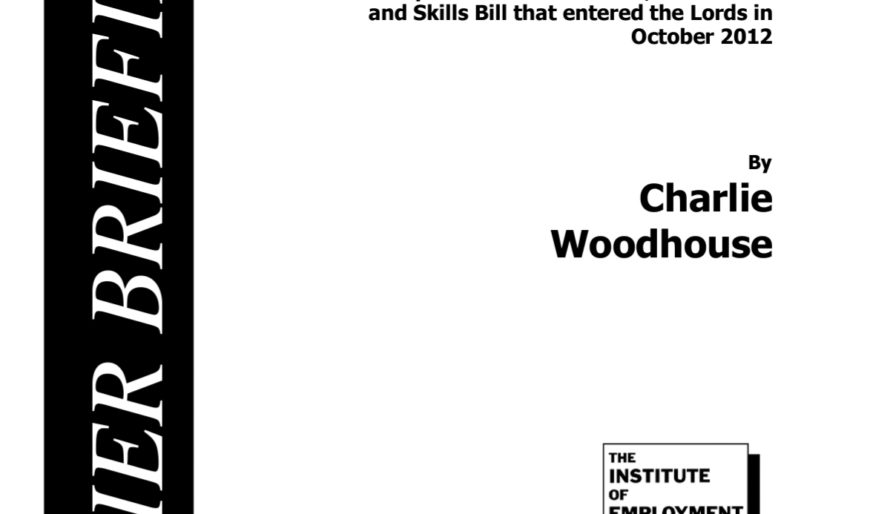Briefing on the Consequences of Clause 14 of the Enterprise and Regulatory Reform Bill
Why putting the onus on workers to prove employer negligence in personal injury claims is an assault on access to justice.

Charlie Woodhouse explains that if the amendment to (s)47 is passed, injured employees will only be able to succeed if they can establish negligence on their employer’s part. This is unfair seeing as workers will be expected to prove that the equipment they were using was not suitable or not maintained within the constricts of health and safety regulations. Historically, it has been the responsibility of the employer to prove that they have not breached health and safety regulations by providing such information, which is fair seeing as they are the party who most likely to have access to this information and who has been given the responsibility to be compliant to the rules.
Woodhouse explains:
The employee is at a serious evidential disadvantage in claims against their employers. The workplace, system of work and work equipment are outside their control; they cannot know whether they are the most appropriate or suitable or whether they have been adequately maintained or replaced sufficiently regularly. For an employee to prove failings in any of these regards is extremely difficult, necessitating either co-operation (amounting to an admission) by their employer or the obtaining of expert engineering evidence. This will lead to a increase in the cost and difficulty of these claims. In cases where the employer repairs or disposes of equipment or paperwork it will be impossible to gather the necessary evidence – this will give rise to the obviously unjust situation that an unscrupulous employer could dispose of evidence to avoid liability.
Woodhouse also states that it is difficult to know whether Clause 14 was introduced for political gain since it was added to the Enterprise and Regulatory Bill so late in the process it has not been discussed in parliament. But he highlights that an effect of the clause will be to pass the cost of accidents of work to the taxpayer and away from insurance companies.




